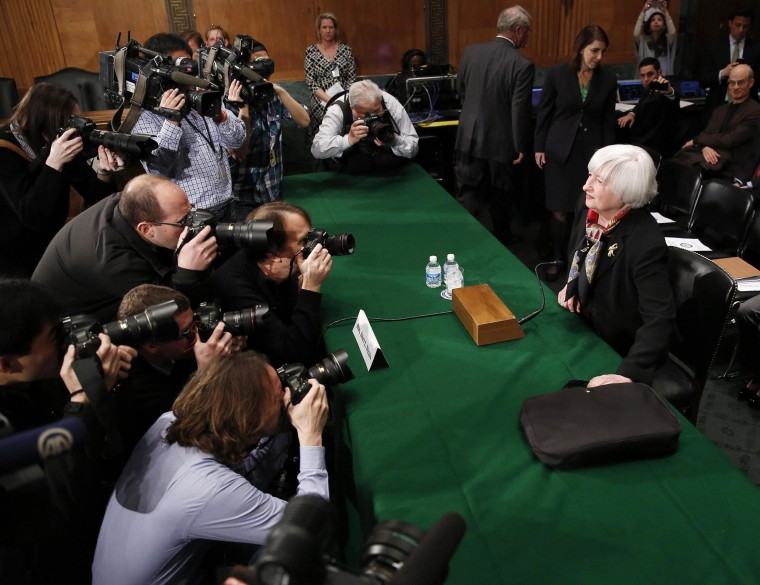
Federal Reserve chief Janet Yellen said on Thursday that harsh winter weather may have had an impact on recent economic data and she reiterated her stance that the Fed's monetary policy should remain appropriate for some time.
"Since my appearance before the House committee, a number of data releases have pointed to softer spending than many analysts had expected," Yellen told the Senate Banking Committee. "Part of that softness may reflect adverse weather conditions, but at this point it is difficult to discern how much."
Most recently, the number of Americans filing for jobless claims unexpectedly shot higher last week, the Labor Department said Thursday.
The Fed currently purchases $65 billion in Treasurys and mortgage-backed securities every month as part of its long-running stimulus measures, down from the program's original $85-billion-a-month amount.
Yellen said the tight fiscal policy, which has buoyed stock markets, has posed a drag on the U.S. economy, also weighing on monetary policy.
On the jobs front, she stressed that 6.5 percent is not the central bank's definition of full employment, adding that unemployment rate alone is not sufficient to measure the health of a job market. The has Fed previously said it won't consider raising rates until the unemployment rate hits 6.5 percent, as long as inflation expectations remain below the 2.5-percent mark.
